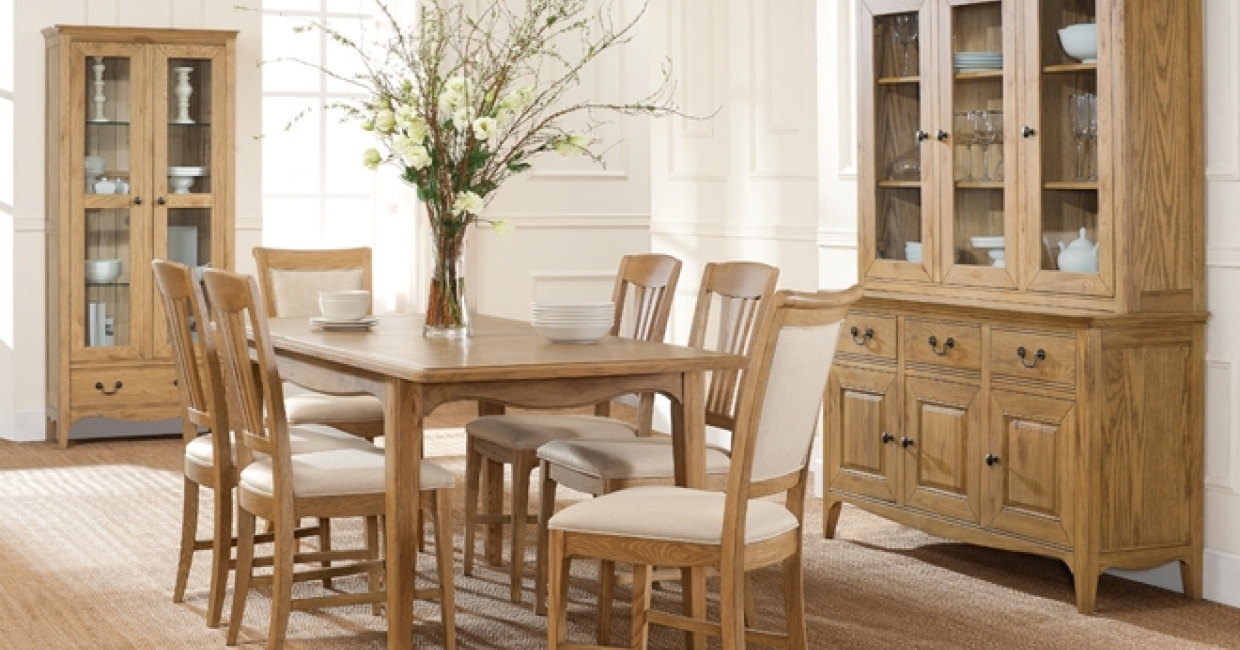Classic Furniture is all about simplicity. The Lincolnshire-based wholesaler doesn’t worry about what its competitors are doing, or employ any clever tricks to maintain its market-leading position – instead, it adheres comfortably to a few basic principles of product and service, confidently juggling over 700 active accounts across the UK. Paul Farley reports …
That’s not to say that the company’s success comes easily. Cabinet furniture continues to be one of the hardest-hit furniture sectors, an area that hardly demands the same the frequency of replacement in the home as, say, a bed, or a sofa. Given that, it’s remarkable that Classic’s business is proving so healthy – indicating that the business model would boom were it not for today’s economy.
The addition of Flexiload’s wholesale business to Classic’s last November significantly increased the latter’s client list and product range. According to director Andy Rippin, incorporating this new business has not been without its challenges, yet the outcome has been more positive than he expected.
“We initially thought that the addition of Flexiload’s ranges would mean we’d really have to concentrate and refine our range – but, as it turns out, it’s given us the ability to satisfy even more accounts,” he says. “Even when there are cases of geographical overlap between stockists, we can offer collections that are different enough that the stockists avoid direct competition.
“The biggest learning curve for us in taking over Flexiload’s Flexicube business has been managing the stock levels and volume of sales on each range, month on month. We took on six new ranges in November, yet our information was limited. December and January were spent guessing at stock levels. Now, six months down the line, it’s only just getting to the stage where the system is helping stock levels – computers help with predictions, but they’re only useful if they’re working on historical data.
“We make sure the retailer isn’t kept in the dark at any stage of the supply process”
“These ranges were already running at speed in shops we didn’t have a history with. It’s certainly a lot easier when you launch a range from scratch! We introduced those ranges to our existing customer base at the same time, so we were really heading into the unknown.”
That said, the process in general has proved fairly painless from the point-of-view of most stockists – many of which were already stocking Classic Furniture ranges. “We’ve simplified it for them,” says Andy. “Stockists have the confidence that it’ll all run smoothly now – once people had a few orders come in, and knew that we delivered what we promised, they were happy with it.”
Andy finds it difficult to pin down the reasons for Classic Furniture’s success in recent years. “It’s our overall package, I guess,” he says. “Communication, delivery, service, stockholding – even down to the way we portray ourselves to the retailer. Communication is the biggest part – we make sure the retailer isn’t kept in the dark at any stage of the supply process.”
The company’s activity is remarkable when one considers that its team comprises less than 25 people. “It’s really down to what you’re selling,” says Andy. “We are not selling the cheapest product – if we were, we’d have an increase in service issues, taking up a serious amount of time in calls and deliveries which, from our point of view, is wasted time.”
"Perhaps due to the importance of perceived quality, we’re doing a serious amount more volume in the higher end of our offering than the lower these days.”
Three new ranges are now on offer from Classic Furniture, taking the overall number of ranges on offer to 17. The first is this month’s front cover star, Orvieto, a delicate, traditional, French-influenced oak range that features moulded tops, tapered feet and panelling details.
Orvieto marks a move into fairly new territory for Classic Furniture. “We’ve always gone down the fairly heavy, chunky product route,” says Andy, “but as we’ve gone down the line we’ve moved more into furnishing retailers, so there is a need for a more refined, higher-end style. Perhaps due to the importance of perceived quality, we’re doing a serious amount more volume in the higher end of our offering than the lower these days.”
Next is Denver, a dining and living collection that mixes solid timber with oak veneer, suitable for both country and city settings. Its natural timber colouring, combined with the random rounding of edges, results in a rustic yet clean feel.
Finally, there is Chunky, which saw a pre-launch at Interiors UK back in January. Chunky is an enduring, clean-lined, contemporary collection that mixes solid oak with oak veneers.
All three are strong additions to Classic Furniture’s sizeable portfolio, which has seen some streamlining despite the simple integration of the Flexicube ranges. “We worked very hard to make sure we had all the EU Timber Regulation (EUTR) information in place,” says Andy, “to the extent that the shabby-chic Rochelle was actually dropped because we couldn’t ensure that the factory producing this range was EUTR-compliant. We’re working on a replacement."







